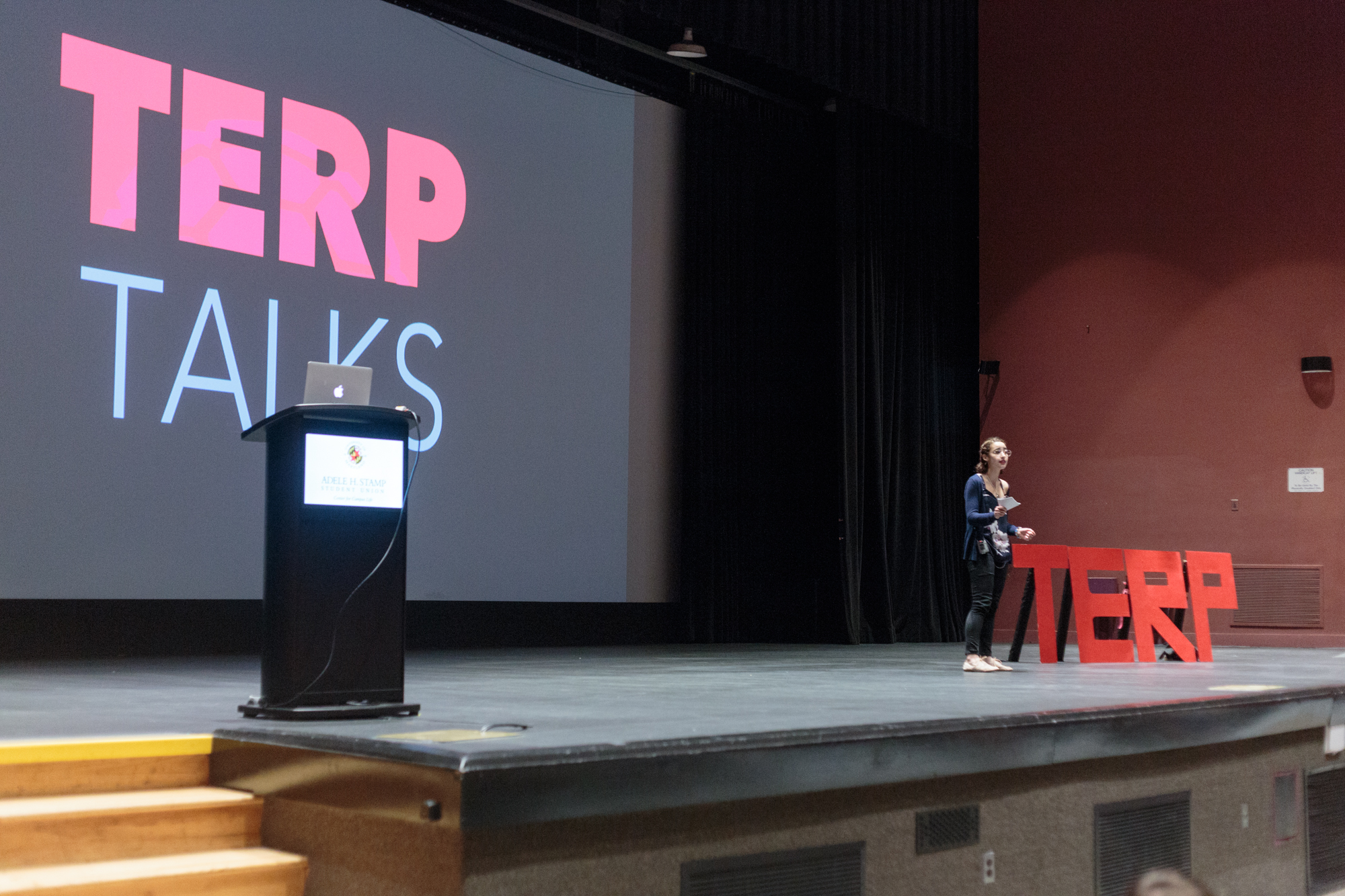Eight students spoke Tuesday during the University of Maryland’s second Terp Talks seminar of the year in Stamp Student Union’s Hoff Theater.
About 75 university community members gathered on Maryland’s primary day to hear the speakers at the TED Talk-inspired event, which discussed topics ranging from the nature of tribalism, to better treatment for the transgender community, to space exploration.
“We started last year as a way to give COMM107: Oral Communication students an opportunity to practice their speaking skills on a bigger stage,” said Jake Shapiro, a sophomore government and politics major and the Terp Talks president.
This year, the organization expanded to two showcases, Shapiro said. In addition to this event, which featured students nominated by their COMM107 professors, Terp Talks hosted a previous showcase at the end of March that featured nine non-COMM107 students who applied online to speak.
Joshua Silverman, a freshman Arabic and government and politics major, started the night with a speech about Sundara Fund, an organization that recycles soap waste in an effort to reduce hygiene-related deaths in vulnerable populations.
Silverman said the organization’s founder, Erin Zaikis, partnered with the hospitality industry in India to turn leftover soap and shampoo into new bars of soap. The organization began about a year and a half ago, and has since expanded out of India and into Malaysia and Uganda.
“Every year, the hospitality industry wastes billions of pounds of soap,” Silverman said. “Ninety percent of the world’s soap waste comes from the hospitality industry alone.”
Two of the speakers — Joshua Ashkenazy, a freshman criminal justice and psychology major, and Isabela Barriga, a senior public health science major — focused on self-empowerment. Ashkenazy talked about the benefits of journaling for self-reflection and stress release, while Barriga emphasized letting go of the fear to fail and pursuing what makes one passionate.
Matthew Marks, a junior astrophysics major, led a discussion about the value of space exploration to society as a whole.
“To me, it’s clear that humans have this innate drive to explore,” Marks said. “It’s what makes us different. It’s what makes us human. It brings us together instead of driving us apart. Our collective drive to explore is slowly fading away, and with it, our shared humanity.”
He continued with an argument for sending humans to Mars, stating that the red planet is the best choice for our next major space expedition.
“Mars is pretty amazing because it’s not just the closest planet, but it also has all the ingredients for life itself,” he said. “Fifty years ago, NASA put people on the moon, and, for a brief moment, all of the borders on the planet that kept us apart disappeared. …I’m excited for the day that the borders can again fade away, where we can act like a species.”
Freshman neurobiology major Adit Sabnis closed the night with a presentation about the Parsi community in India.
The minority group, which makes up roughly 0.006 percent of the entire Indian population, has “a disproportionate aptitude for success,” Sabnis said. “They’re a community outside of India that probably most people haven’t even heard. For the most part, they’ve managed to preserve their unique gene pool.”
The community, according to Sabnis, is on the verge of extinction. Their population is declining due in part to low birth rates and pressure to marry within the community itself.
“They’re considered to be among the most wealthy and among the most successful groups in the Indian community,” he said.



